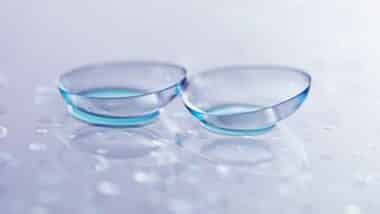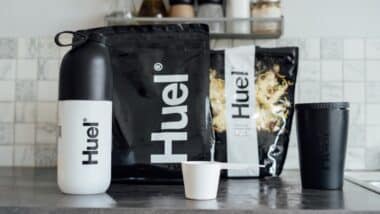
Scientific studies lawsuits overview:
- Who: Science played a key role in recent lawsuits and studies.
- Why: The lawsuits involve claims of spreading falsehoods and improper tissue harvesting. The studies relate to drinking water, tick-borne meat allergies and another use for a weight-loss drug.
- Where: The lawsuits were filed in North Carolina and Maryland federal courts.
A pair of lawsuits filed in August involve artificial sweetener claims and unauthorized cell harvesting.
Additionally, the Environmental Protection Agency (EPA), Centers for Disease Control and Prevention (CDC) and Novo Nordisk published the results of scientific studies that affect consumers.
Doctor spread falsehoods about Splenda’s health risks, manufacturer says
TC Heartland LLC, the maker of Splenda, filed a lawsuit against Dr. Susan S. Schiffman earlier this month over claims the North Carolina-based doctor spread falsehoods about its artificial sweetener.
TC Heartland argues Schiffman spread false information about Splenda, namely that it could lead to health issues, including cancer.
“Dr. Schiffman spread falsehoods about Splenda, and, in doing so, she harmed Heartland and the millions of consumers who rely on Splenda as an important part of achieving their health goals,” the Splenda lawsuit states.
Schiffman conducted a press tour claiming Splenda contains sucrose-6-acetate, a compound she argues could change a person’s genes and cause adverse health effects, such as inflammation and cancer, according to the Splenda lawsuit.
However, TC Heartland claims the sucralose Schiffman studied is not the same as what is found in Splenda, saying a paper published by the doctor is “shoddy” and ignores scientific protocols.
Ultragenyx harvested woman’s tissue without consent, lawsuit claims
The estate of Henrietta Lacks filed a lawsuit against Ultragenyx Pharmaceutical Inc. in August over claims the company knowingly used cells harvested from Lacks’ body without her consent.
Lacks’ estate claims Ultragenyx used the harvested cells to create its “proprietary” gene therapy products, arguing the biopharmaceutical company allegedly made a fortune doing so.
Ultragenyx is accused of knowing physicians at John Hopkins Hospital allegedly took tissue from Lacks, a Black community leader, without her knowledge or consent during a surgical operation in February 1951.
“The exploitation of Henrietta Lacks represents the unfortunately common struggle experienced by Black people throughout American history,” the cell harvesting lawsuit states.
EPA releases data from drinking water testing for ‘forever chemicals,’ lithium content
The EPA released data earlier this month that revealed more than 22% of initial water samples tested for a total of 29 per- and polyfluoroalkyl substances (PFAS) and lithium contained more lithium than is considered healthy.
Additionally, a total of 7.8% of the water samples tested contained perfluorooctanoic acid, while 8.5% contained perfluorooctanesulfonic acid, both of which are known as “forever chemicals.”
The results were from the first 7% of drinking water tests the EPA completed. The organization says it expects to complete full testing by 2026.
“The latest science is clear: exposure to certain PFAS, also known as forever chemicals, over long periods of time is linked to significant health risks,” Assistant Administrator for Water Radhika Fox says in a statement.
Tick-borne meat allergy on the rise, CDC says
In late July, the CDC released data showing more Americans are developing a potentially life-threatening tick-borne allergic condition known as alpha-gal syndrome that can cause an individual to become allergic to red meat.
The CDC attributes the allergic condition to the lone star tick, which it warns has expanded its range across the country, causing more Americans to come in contact with the parasitic arachnids.
A government report revealed that the number of Americans who tested positive for alpha-gal syndrome, which many doctors don’t test for, has risen from about 13,000 in 2017 to 19,000 in 2022.
Wegovy able to prevent major adverse cardiovascular events, manufacturer says
Also in August, pharmaceutical company Novo Nordisk announced its weight-loss drug Wegovy is able to prevent major adverse cardiovascular events, such as heart attack or stroke.
Novo Nordisk says its findings are the result of a five-year double blinded trial consisting of 17,604 adults over the age of 65 with an established cardiovascular disease that compared the effects of Wegovy against a placebo.
“We are very excited about the results from (the trial) showing that (Wegovy) reduces the risk of cardiovascular events,” Martin Holst Lange, executive vice president for development at Novo Nordisk, says in a statement.
What do you think of the recent scientific studies and lawsuits? Let us know in the comments.
Don’t Miss Out!
Check out our list of Class Action Lawsuits and Class Action Settlements you may qualify to join!
Read About More Class Action Lawsuits & Class Action Settlements:















One thought on Scientific research plays important role in recent lawsuits; consumers may benefit from studies
add me